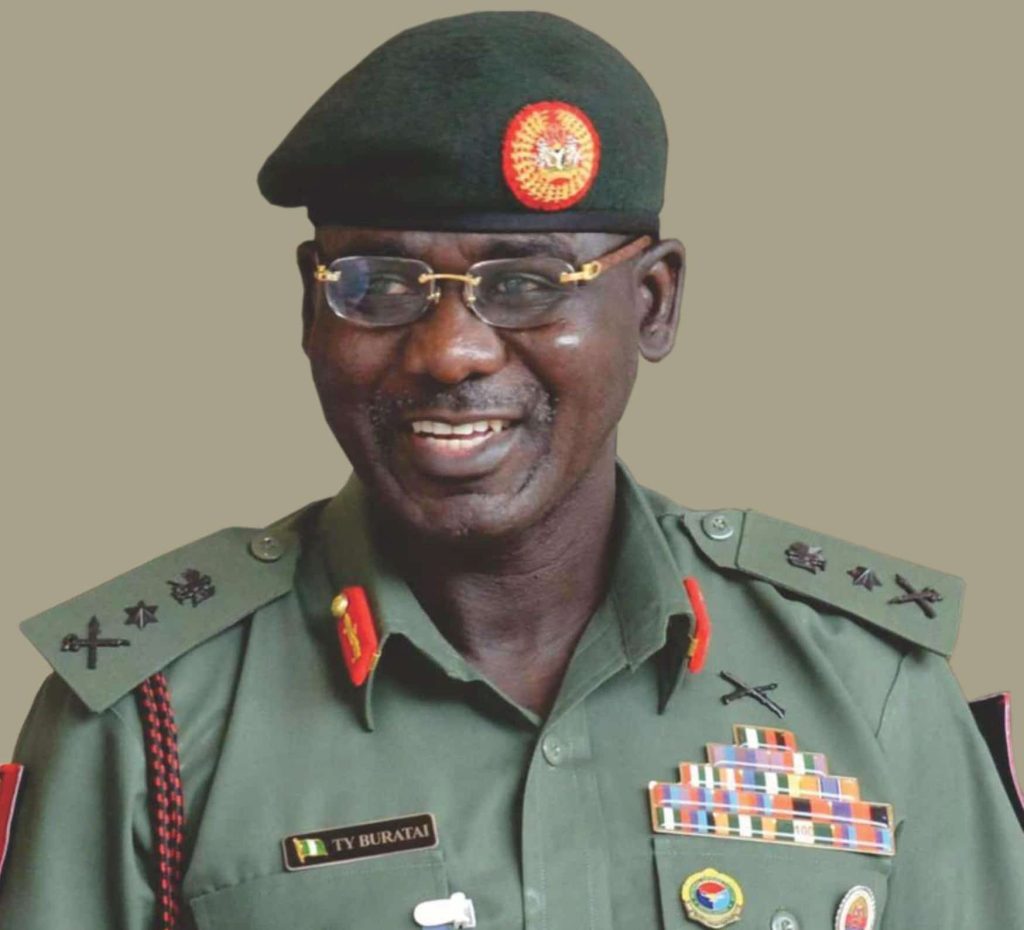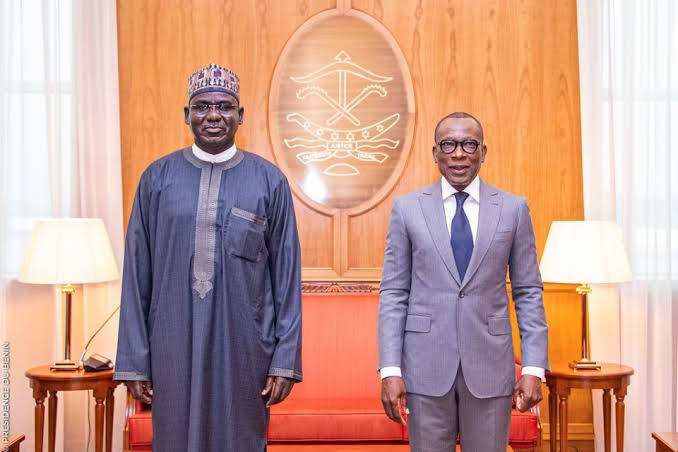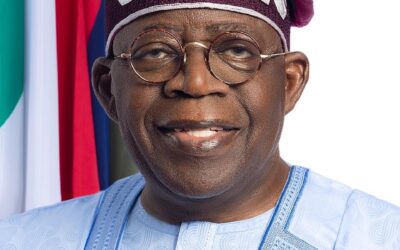TY Buratai: The Forthcoming Biography

“Great excitement and hopes had followed Nigeria’s political independence on 1 October 1960 after decades of British colonial rule. Independence, which has remained an annual celebration since then, brought relief to the Nigerian populace and a certain sense of freedom. It marked the end of an era of national political servitude, and the beginning of another where the citizens exercised the right to choose leaders for themselves and direct the course of their own development. For the elites who took over the baton of power and leadership, it was a time to bring into reality the lofty dreams they had nursed for the geopolitical entity that had become known as Nigeria.
“Over half a century down the line, neither the departing colonialists, nor the founding fathers of the new nation could have imagined the tunnel of decline and despondency that Nigeria had driven into. Yet, independence was such a positive and illuminating experience that it brought with it the promise of a future; it heralded the birth of Tukur Yusufu Buratai just a few weeks after, sowing one of the seeds of national self-renewal and advancement in the polity.”
The foregoing are the opening paragraphs in the forthcoming biography of Nigeria’s former Chief of Army Staff, Lt. General Tukur Buratai, now His Excellency and Nigeria’s Ambassador to the Republic of Benin. Buratai attains the age of 61 today.
The significance of General Buratai as the 24th Army Chief and the longest-serving in the history of the nation can be primarily conceptualized in the context of his achievements in terms of the nation’s security and sovereignty, and the strengthening of the Army to previously unprecedented heights.
Beyond opinions and sentiments, Buratai’s biography critical situates the officer and man in the context of his time as an officer and Army Chief, and dwells on concrete, clinical evidence of how he impacted the Nigerian polity, and the lengths and limits of his achievements.
“The coup of 15 January 1966 had set the stage for the dominance of the military in Nigeria’s politics and governance for almost four decades. The incursion of the military into the political arena saw its cardinal value of professionalism undermined. Professionalism speaks to the strict adherence to rules from the rank and file through to the top hierarchy, and to the discharge of duties in the most organized manner.” Building upon some foundation laid by his predecessors, Buratai re-envisioned the Nigerian Army and brought much stability to it as a professional service.
“The return to civil rule came with its challenges; civil security threats, ethnic militancy and insurgency became the new order. The democratic dispensation brought with it such freedom of expression that less than patriotic people were ready to exploit for personal or sectarian gains. In no time, the country was plagued with activities of violent non-state actors.”
In addition to all of these ethnic and religious conflicts, the responsibility always fell on the Armed Forces to tackle the all internal insurrections and uphold the supremacy of the people of the country and their democratically elected government. The army in particular had and is still being deployed to various conflict zones across the country, in order to keep the country together.

In 2014, Nigeria had lost some of her territories in the Northeast to Boko Haram, and despite some effort from the military, the situation deteriorated. The Boko Haram had hoisted its flags in several communities, such as Baga, Bono, Konduga, and Kauri towns, which it tagged as part of its caliphate. It was reported in various media that the insurgents had such seeming formidable fire power that made Nigerian soldiers flee from face-offs.
The military came under intense criticisms by the media and the international community. The country became even more tensed as America’s prediction of the year for the disintegration of Nigeria drew closer. It seemed that security challenges multiplied on a weekly basis, and new issues came up as others got sorted.
There was no doubt that a formidable team was needed to address the issues, but there was also a consensual understanding that the Chief of Army Staff would play a critical role in achieving the security objectives of the Federal Government, since he was in charge of the most critical sector of the Armed Forces. It was in this context that Buratai became Army Chief.
He had the unprecedented “privilege” of leading Nigeria’s war against insurgency and terrorism for five and a half years. That was unprecedented. No other Nigerian military officer has been in such a position, and there is probably only a handful of Generals in the global history of warfare that had such an “opportunity”.
Buratai vigorously pursued his vision for a truly professional Nigerian Army. He led an Army that has subjected itself to political authority in line with the dictate of the Constitution.
Military planning and strategy became core elements in the war against terrorism and insurgency. His experience of asymmetric warfare as Army Chief covered dealing with the physical and environmental terrain and their implications vis-à-vis the strength of the Army, and contending with the multidimensional issues of procurement and deployment of arms and ammunition, among others. Under his leadership of the Army between late 2015 and 2018, Boko Haram was completely brought to its knees. The Army undid the gains of insurgency, and restored Nigeria’s territorial integrity. Till today, there is no Nigerian territory that is under the control of Boko Haram. But the group could not be completely eliminated. Buratai’s biography offers much insight into that.
Beyond the war against insurgency and insecurity in the country and safeguarding the national heritage and sovereignty, Buratai took the Nigerian Army to an unprecedented place of honour in virtually all aspects of human, organizational and professional development. In spite of the numerous coordinated efforts of detractors, he remained focused and led by the books, laid solid structures for capacity development and a self-sustaining Army, invested heavily in officer and soldier welfare, and left behind the legacy of a professionally, mentally and materially developed Nigerian Army that has steadily remained combat-ready and protective of the Nigerian cause.
Fortunately for him, his successors have followed his path of positive legacy building. The vision of the current Army Chief, Lt. General Faruk Yahaya, for “A professional Nigerian Army ready to accomplish assigned missions within the joint environment in defence of Nigeria” critically aligns with the foundation that had been laid by his predecessors, Buratai especially.
As Ambassador Tukur Buratai, Lt. General, clocks 61 today, we wish him good health and more successes in his personal life and service to the country. Importantly also, Nigerians await the release of the forthcoming biography, “Tukur Yusuf Buratai: A Life in Strategic and Innovative Leadership,” for greater insights into Nigeria’s long war against insurgency and insecurity, the changing dynamics of the nation’s security challenges, and the legacies of military advancement and nation building.
***
Dr. Udu Yakubu is a biographer and publisher. He can be reached at: udu.yakubu@gmail.com


